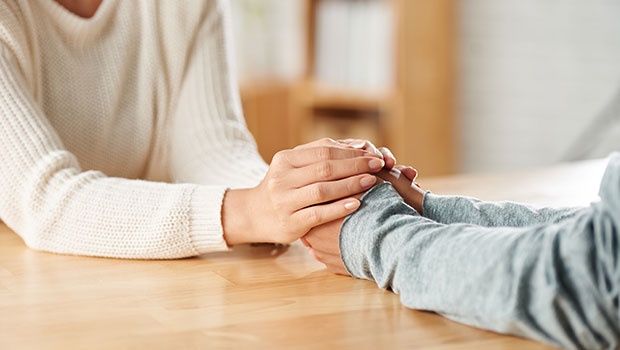
When we hear that someone near to us has experienced sexual violence it can feel incredibly painful and scary. We might not know what to do – it might even feel like there is nothing we can do.
Read more: Violence in South Africa – have we run out of empathy?
But there are a few things that you can do to be a good supporter, and to make sure you have some sensible advice to give, if you are asked for it.
1. Listen
Maya Angelou is quoted as saying ‘There is no greater agony than bearing an untold story inside you.’
One of the most important things you can do if someone tells you that they or someone close to them has experienced sexual violence is to listen.
Although you might feel shocked or hurt, or not know what to say, the important thing is to make space for the person to tell their story in the best way they know how. They need to know that you hear them, that you believe them, and that you support them.
2. Respect their decisions and privacy
For many of us, our first reaction to hearing about a problem is to provide solutions. We give advice, often without ever being asked for it.
When someone is sharing their experience of sexual violence, it’s not the time for you to be a superhero who has all the answers to make their pain go away. You have to listen (see step 1) and respect the decisions they are making. Their recovery has to take place at their own pace.
Another important thing is to respect their privacy. It might be your instinct to keep checking in to see how they’re doing, or to try and get your loved one to keep talking. This isn’t always the best for them, or their healing. Make space for them when they’re ready to talk, but let them know that you’re there to sit with them in silence too.
3. Share information with them about their rights
It might be the case that they ask for advice. There are ways that you can provide them with some good resources on what to do if they’ve experienced sexual violence, what their rights are, and what the process for reporting the crime is.
Read more: I hear my neighbour being abused - what is the best thing to do?
Some important things to know are that sexual offences do not prescribe in terms of the law. This means that there is no time limit on reporting them, so no person can be turned away because the crime happened a long time ago. Offences can be reported to the police in person, or by telephone. You can find out what to expect, here.
Rape Crisis Cape Town Trust has a guide on what to do if you are raped that can be downloaded in English, Afrikaans, and Xhosa.
4. Link them to counselling services
The trauma of a rape or an experience of sexual violence is very powerful and the healing process takes time. One of the most helpful things you can do is recommend that they seek counselling, to get support throughout the stages of healing and recovery.
You can also refer them to the TEARS helpline, which can be smsd via *134*7355# which will help you them to find a centre for support for rape and sexual abuse near to them, and will send them an sms with the details.




 Publications
Publications
 Partners
Partners










